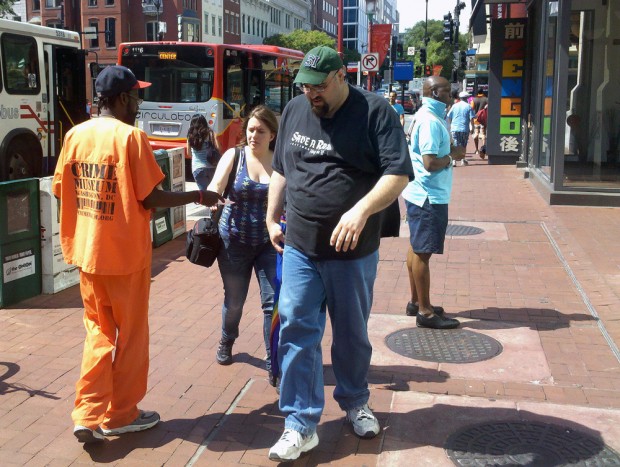
Flickr: Tony Webster
D.C.’s homicide rate is dropping, but blacks are still disproportionately affected, according to Metropolitan Police Department statistics. Greater Greater Washington reports:
D.C.’s black homicide figures are still much higher than comparable rates at the national level. In fact, on a per resident basis, blacks in the District face over double the homicide rate as blacks in the nation as a whole.
There were 1.3 homicides per every 100,000 white D.C. residents in 2010, the same year that saw 37.7 homicides per every 100,000 black D.C. residents.
Homicide Watch D.C. editor Laura Amico, whose mission is to document every homicide in the District, wrote in a GGW comment:
It is so tragic to add victim photo after victim photo to the albums and see young black man after young black man (with some exceptions). Sit through court and you see much the same parade. The one thing that becomes so clear is that in homicides, there are so many more victims than just those that are killed. All the families and so many friends, of both victims and defendants, are impacted and affected by the deaths, too.
Communities are affected by violence in multiple ways. Take health: violence, or even the perception of violence, can prevent young and old alike from being physically active, as we’ve previously noted:
Obesity rates are higher in Wards 6, 7 and 8 than elsewhere in the city. Ward 8, which has the highest homicide rate, also has the lowest physical activity rate. According to D.C.’s Overweight and Obesity Action Plan, 15 percent of all deaths in the District are a result of obesity. But in some parts of the District, the fear of getting shot while walking in your neighborhood can trump the more subtle reality of dying from an obesity-related illness.







